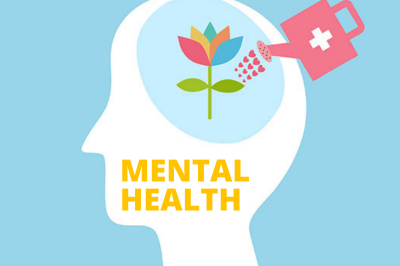Depression is a constant feeling of sadness and loss of interest, which stops you from doing your normal activities. It is a common and serious medical illness that negatively affects how you feel, the way you think, and how you act. It can lead to a variety of emotional and physical problems and can decrease your ability to function at work and home.
Nowadays, children and youth are being affected by it more and more. Depression growth in young people is developing signs of other mental diseases, and lasting changes in personal, social, educational, and professional activities are all adverse effects of depression. Therefore, avoiding early treatment for depression in young people is a significant problem.
There is no single cause of depression, but it can develop from life events, genetic dispositions, hormones, or any combination of those factors. Have you ever wondered why children and youth nowadays suffer more from depression? Why more than 70% of children and adolescents with depressive disorders do not receive treatment? Is depression a result of bad parenting?
Childhood mental health problems can have lasting effects on children’s life chances. Behavior problems are the most common mental health problem in early childhood, affecting 5–10% of young children. This article provides an in-depth look at the signs and symptoms of depression in children and youth today, as well as strategies for managing the condition. Also, this article examines who is most at risk for depression and how to prevent it.
Problem Statement
Understanding the primary causes, risk factors, and effects of youth depression spreading is critical for establishing effective safeguard measures, treatment strategies, and support systems.
By addressing the complexity of the depression crisis, we can work to create a better and more enduring environment for young people, encouraging their mental well-being and assuring a brighter future for the next generation.
There is no single cause of depression, but it can develop from life events, genetic dispositions, hormones, or any combination of those factors.
Causes of Depression in Young People
There is no single cause of depression; life events, hormones, chemical imbalances, and genetics can all play differing roles depending on the individual. While each young person will have their own responses to life events, some circumstances that can contribute to anxiety and depression in young people include:
• Fights with family or friends.
• Changing schools or starting secondary school.
• Being bullied.
• Experiencing a relationship break-up, recent death, abuse or neglect.
• Serious medical conditions.
• Personality.
• Drug and alcohol use.
• Disturbances in normal chemical messaging processes between nerve cells in the brain are believed to contribute to depression.
Symptoms of Depression in Youth
Young people can feel sad and worried about life events such as exams, fights with family or friends, changing schools, or moving house. Sometimes, the sadness goes on for weeks or months and affects everyday life. If a young person feels miserable most of the time and finds it difficult to get motivated, they may have depression.
Symptoms that may indicate depression include:
• Feeling irritable or grumpy.
• Feeling tired.
• Feeling worthless or guilty most of the time.
• Having thoughts of death or suicide.
• Having trouble sleeping – either falling asleep or staying asleep.
• Lacking motivation and feeling everything is too hard.
• Losing interest in food or eating too much.
• Losing weight or gaining weight.
• Lack of interest in their hobbies.
• Not looking after their own hygiene.
• Using cigarettes, alcohol, or illegal drugs.
Also Read: Shifting global order and Pakistan’s foreign policy
Sometimes, there are no obvious symptoms of depression, but parents may notice behavioral changes in young people that suggest depression and should not be ignored. These include:
• Social withdrawal.
• Lower marks at school.
• Changes in mood and behavior.
• Risk-taking behavior.
• Use of alcohol and drugs.
• Frequent headaches.
• Stomach and muscle pains.
• A churning gut.
• Talk empty or unable to feel emotions.
• Seem unable to relax or be more lethargic than usual.
• Not have much confidence.
• Be indecisive.
Thoughts Caused By Depression
• I’m a failure.
• It’s all my fault.
• Nothing good ever happens to me.
• I’m worthless.
• Things will never change.
• People would be better without me.
• Life is not worth living.
Possible Brain Changes
Although extensive research in this challenging field, much remains unknown. Depression is not caused solely by a chemical imbalance, such as having too much or too little of a specific brain chemical. However, disruptions in standard chemical communication mechanisms between nerve cells in the brain are thought to contribute to depression. Factors that might cause incorrect mood regulation in the brain include:
• Family history, extreme life stressors, medication, drug and alcohol use, and certain medical diseases.
• Most current antidepressants affect the brain’s chemical transmitters, specifically the hormones noradrenaline and serotonin, which carry messages between brain cells. This is thought to be how drugs treat depression.
Problem Solving – Treatment For Depression
Encourage young people to express their feelings to someone they know and trust, such as a parent, teacher, school counselor, family member, or friend. A crucial next step is for the young person to see their doctor to see whether they have depression and what treatments are available.
People suffering from depression can benefit from psychological therapy that focuses on developing skills to deal with life challenges and change negative thought habits, as well as lifestyle adjustments (such as establishing exercise and sleeping routines).
Your doctor may also include antidepressant medication in your treatment regimen. It can take up to six weeks to feel better after starting drug treatment, but most young people will notice a difference. Please encourage them to speak with their doctor about any mood changes.
How Can I Help Someone With Depression?
Some persons with depression struggle to find the energy or motivation to care for themselves, and they may feel hopeless or as if nothing can help. Supporting them and directing them to expert care will make their recovery simpler.
You could recommend that they begin with something they know they can do, such as seeing a friend or going for a run or walk, so that they feel like they are improving. Sometimes, persons suffering from depression refuse to seek help. In such a case, the most significant thing you can do is communicate your concerns and provide them with depression-related literature.
It can help to remind them that one in every four young people experiences mental health issues, with depression being the most frequent. Assure them that there is nothing to be embarrassed about and that doctors regularly help individuals their age with depression. In some cases, your doctor may prescribe medicines for depression (antidepressants) or refer you to a psychiatrist. It is essential that you check in regularly with your doctor if you have started taking medication for depression.
Conclusion
Depression, a common disorder in the general population, is seen even more frequently in general medical settings. It is associated with significant individual and family suffering, an increased risk of suicide, functional impairment, and a high economic toll in terms of healthcare costs and lost productivity.
Diagnostic criteria are well established, and several screening techniques are available for use in symptomatic individuals. Highly effective psychopharmacological and psychotherapy treatments are available. Most cases of depression found in general medical settings are milder kinds of conditions than those seen in specialized settings, and they are commonly treatable in the primary care environment by people with the necessary skills.
Only around half of all phases of depression are recognized and diagnosed in hospitals, but the fact that these undiagnosed cases are typically milder and more limiting themselves. Improved recognition by physicians is primarily connected with attitudes toward depression and the use of specific interviewing techniques.
Even when cases are identified, therapies the pharmacologic and psychological therapies provided frequently fall short of current practice guidelines. When procedures are followed, patient results are pretty positive. Several programs are underway to reduce these barriers, but undertreatment remains a serious problem.
***Mehak Naeem, the Author, works as a clinical psychologist, ADCP, family and child counselor, behavior therapist, and college psychology lecturer.








